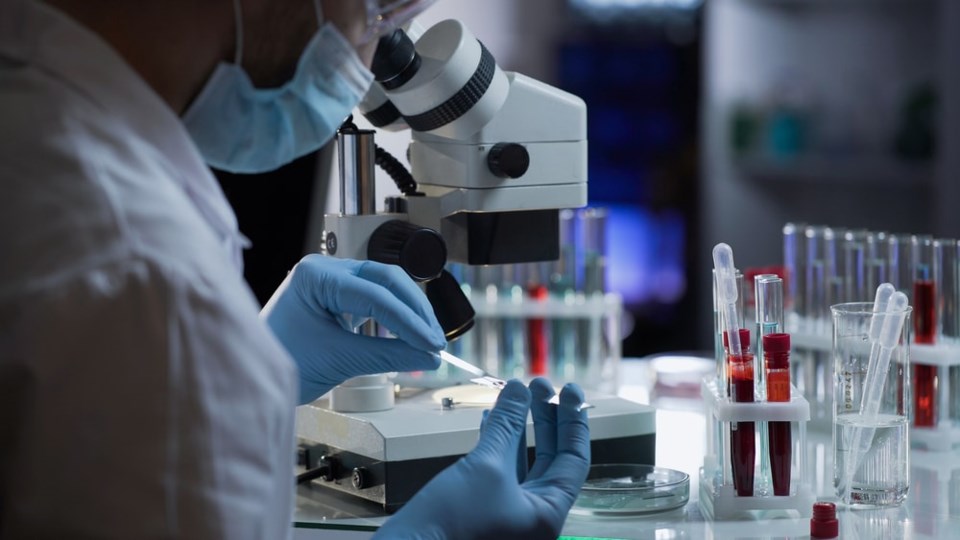For medical reasons, my mother would be deemed high risk for COVID-19. She’s a practical and resourceful person, so despite how restricted tests are, I shouldn’t be surprised that last week she took a COVID-19 test and an antibody test.
A large recording studio in Nashville hosted a traveling lab and offered free tests to working musicians. As one of them, she and a friend went one afternoon. The traveling lab had a long line of cars outside it. She describes a very measured, regimented approach to testing. Everyone was required to wear a mask and wait in their cars for their turn. While she was given a painful nose swab for COVID-19, she was particularly interested in the antibody test. She is one of many people who wonders if she might have already had COVID-19 and didn’t know it.
Dr. Anthony Fauci, director of the National Institute of Allergy and Infectious Diseases, recently told NBC, “There may be many people out there, and I suspect there are a fair amount, that have been infected, were asymptomatic and didn’t know it.”
In January, she fought off what she thought was a sinus infection that turned into a dry, painful cough. As someone who is high risk, it would be a relief to know that she has had it and may have built some measure of immunity.
“It would ease my mind,” she says. “It could free me up to not feel quite as claustrophobic.”
As quarantine has stretched on, people are growing more impatient for an end to it. A vaccine is at best a year away, and while some say the economy can’t be reopened until then, many people are at the end of their savings and their wits. As officials discuss reopening, it’s clear we are in a terrible position. To reopen too early could mean a longer pandemic with more spikes in infection; to remain closed too long means loss of income, loss of housing, and a rise in poverty.
More than anything, people are ready for a solution.
Antibody tests–also called serology tests–could be a part of that solution.
Antibodies are proteins left in the blood after the body fights off a disease and remains once the disease is gone. By looking at antibodies, medical professionals can see what the body has fought off. Two weeks after a COVID-19 infection, whether or not a person ever exhibited symptoms, a serology test can detect COVID-19 antibodies, according the Centers for Disease Control.
But the antibody test can’t determine whether someone currently has it. People like my mom seek it, hoping that a positive result could signal that they have built what the World Health Organization calls a “measure” of immunity. There is reason to predict that having COVID-19 could lead to immunity. In the case of other coronavirus diseases like SARS and MERS, a positive antibody test typically intimated at least some immunity.
The World Health Organization issued a warning Friday, saying there’s no evidence yet that antibody tests can show whether a person has immunity or is no longer at risk of becoming reinfected. They also note that not everyone who has recovered from coronavirus has the antibodies to fight a second infection.
However, antibody tests are still useful for learning about COVID-19 while COVID-19 testing continues to ramp up. According to the COVID Tracking Project, launched by The Atlantic to track the virus, Texas has administered more tests than most other states, 290,517 as of last night. But because of its high population, the state Texas still ranks 48th in tests per capita. The most tests done in a day in Texas has been just over 20,000. Antibody testing is another way to increase tracking of COVID-19.
In April, hospitals and other medical organizations around the country have started conducting antibody tests on thousands of people to map out just how far COVID-19 has spread over the past few months. In theory, all those possible cases, some people who were monitored but not tested, could retroactively be diagnosed.
Even if all we get from the antibody tests is a history of coronavirus, that’s still useful information on how widespread and infectious COVID-19 is. With other measures like COVID-19 tests, contact tracing, and various safety measures, health officials can get a better handle on the virus.
In the meantime, my mom is still waiting on her results. “They said it would be a week, and it’s been longer,” she says. “I hope they were legit. They’ve got a vial of my blood.”




